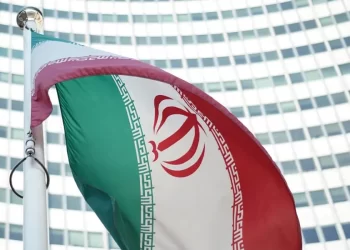BORGO EGNAZIA, Italy (news agencies) — President Joe Biden and Italian Prime Minister Giorgia Meloni had a lot to talk about Friday when they met on the sidelines of the Group of Seven summit, but one notable matter wasn’t on the table: That’s abortion, an issue that emerged as an unexpected friction point among the democracies gathered in Italy.
Meloni’s right-wing government this week worked to water down references to abortion in the final statement issued by all the G7 nations at the end of the summit, prompting a disagreement between nations over language in the final draft on their shared commitments. That is according to two senior U.S. officials, a senior European Union official and two other officials who spoke to media on condition of anonymity to discuss a statement that has not yet been made public.
The draft omits the word “abortion” but does reference the need to promote “reproductive health and rights,” according to a copy of the text obtained by media.
A White House readout of the Biden-Meloni meeting made no reference to the issue and instead emphasized their common efforts to “deepen the U.S.-Italy partnership across a range of vital security, economic, and regional issues.” It cited Meloni’s “steadfast support for Ukraine as it continues to defend itself from Russia’s brutal war of aggression, including Italy’s critical security assistance.”
White House officials say the two leaders work together well despite Meloni’s views on abortion and her other conservative political views, which align more closely to Republicans in the U.S.
The summit has underscored how their relationship has evolved since Meloni rose to power in 2022 as the head of Italy’s first far-right-led government since the end of World War II. Soon after Meloni’s victory, Biden warned about the rise of hard-right populism in Europe and in the United States.
Those concerns have eased with Meloni’s strong support of Ukraine at a time when the commitment by some other far-right leaders has been flagging. Meloni also announced on Thursday that Italy would participate in a U.S.-led investment effort in Africa, the Lobito railway corridor. It was a clear gesture of U.S. support coming on the heels of Italy’s withdrawal from China’s “belt and road” infrastructure initiative.
Biden initially “used Meloni’s candidacy as a warning to transatlanticists on both sides of the Atlantic,” Rachel Rizzo, a nonresident senior fellow at the Atlantic Council’s Europe Center in Washington, said before the summit. “But her premiership has actually been quite forward-leaning in terms of Italian support for Ukraine, in terms of Italian support for NATO. So that relationship has actually developed in a pretty positive direction.”
On the abortion issue, the upcoming G7 final statement will state that the nations reaffirmed their commitment from the 2023 summit in Japan supporting “universal access to adequate, affordable and quality health services for women, including comprehensive sexual and reproductive health and rights for all.”
That 2023 text, however, also plainly stated that the nations reaffirmed a “full commitment” to comprehensive sexual and reproductive health and rights for all, “including by addressing access to safe and legal abortion and post abortion care.”
The final summit statement is a large document covering many issues and often takes wrangling for all leaders to feel comfortable with the final language. French President Emmanuel Macron said he regretted the decision to omit the word abortion.
“It’s not a vision that’s shared across all the political spectrum,” he said. “I regret it, but I respect it because it was the sovereign choice of your people,” he said Thursday to an Italian reporter.
The U.S. delegation was satisfied with the specific references to the 2023 summit in Japan, which affirmed the right to abortion care.
But abortion access is a major focus of Biden’s 2024 reelection campaign, as Democrats seek to motivate voters concerned about worsening medical care for women since the U.S. Supreme Court in 2022 overturned the constitutional right to abortion. Roughly half the 50 states now restrict abortion access, and the topic has broadened to include access to emergency medical care, contraception and in vitro fertilization.
Republican frontrunner Donald Trump has repeatedly taken credit for the overturning of a federally guaranteed right to abortion — having nominated three of the justices who voted to overturn Roe v. Wade — but he has resisted supporting a national abortion ban and says he wants to leave the issue to the states.
Biden, a Catholic, has had a decades-long evolution on abortion rights that has in some ways mirrored the Democratic Party’s changing attitudes. He used to oppose federal funding for abortion services but his administration has worked to protect access, suing states where women have been unable to get care. But he still doesn’t often say the word “abortion” himself.
The fallout from Roe goes beyond what the word “abortion” has generally signified in the U.S. — the ability to end an unwanted pregnancy. Biden’s campaign has sought to use those ripple effects to reach a broader voting base, and also generally uses words like “reproductive rights.”
In Italy, Meloni who campaigned on a slogan of “God, fatherland and family,” has prioritized encouraging women to have babies to reverse Italy’s demographic crisis. Abortion has been legal since 1978, and she has insisted she won’t roll back the law and merely wants to implement it fully.
But her forces recently passed legislation allowing anti-abortion groups to have access to women considering abortions at public health centers where they go for counseling. For those on the political right, the amendment merely fulfills the original intent of the 1978 law legalizing abortion, which included provisions to discourage the procedure and support motherhood.
For the left-wing opposition, the decision chips away at abortion rights that opponents had warned would follow Meloni’s 2022 election.









